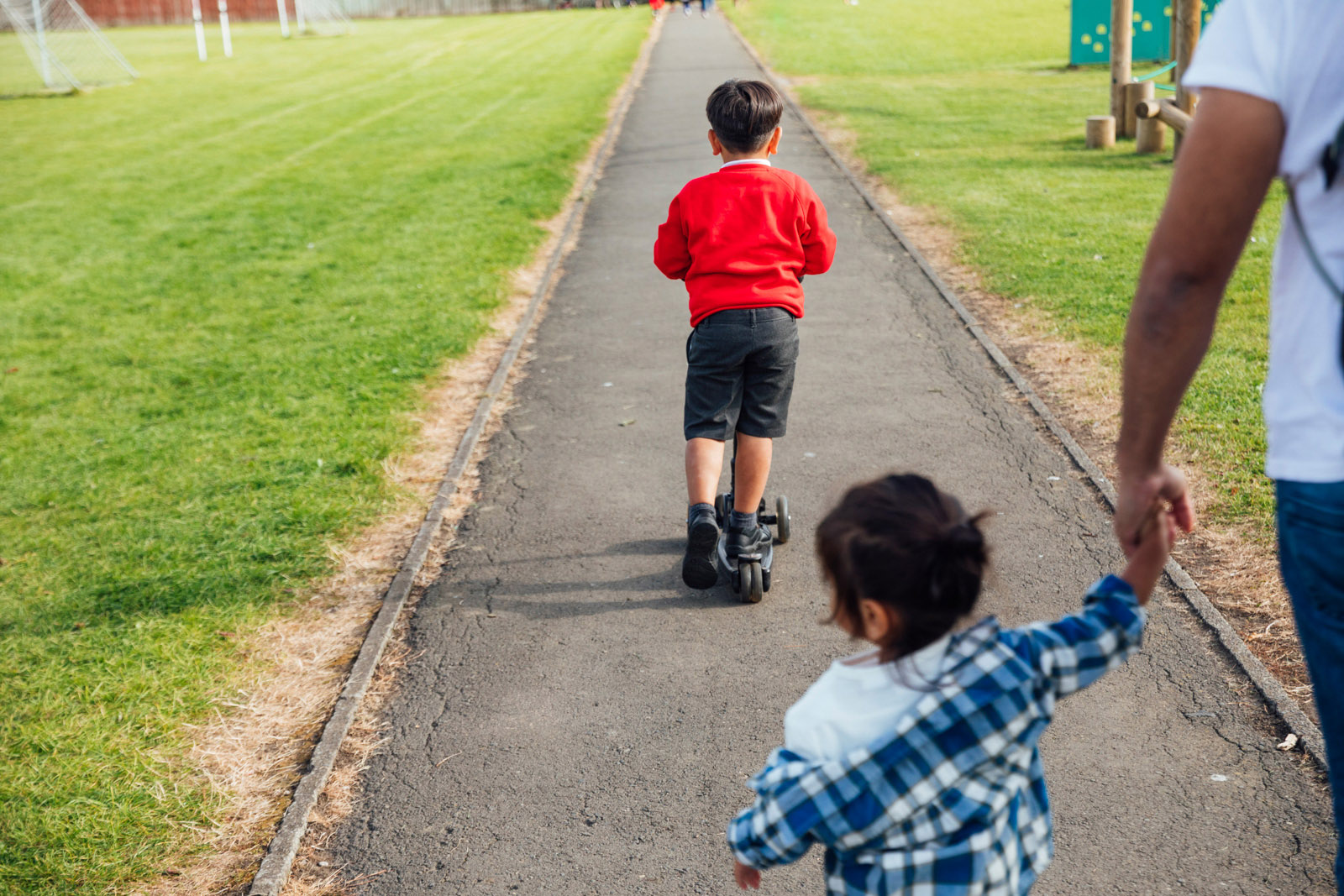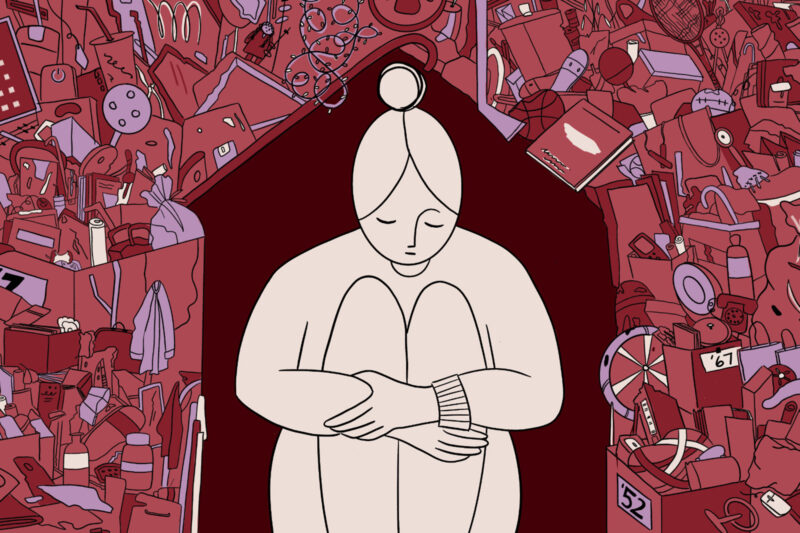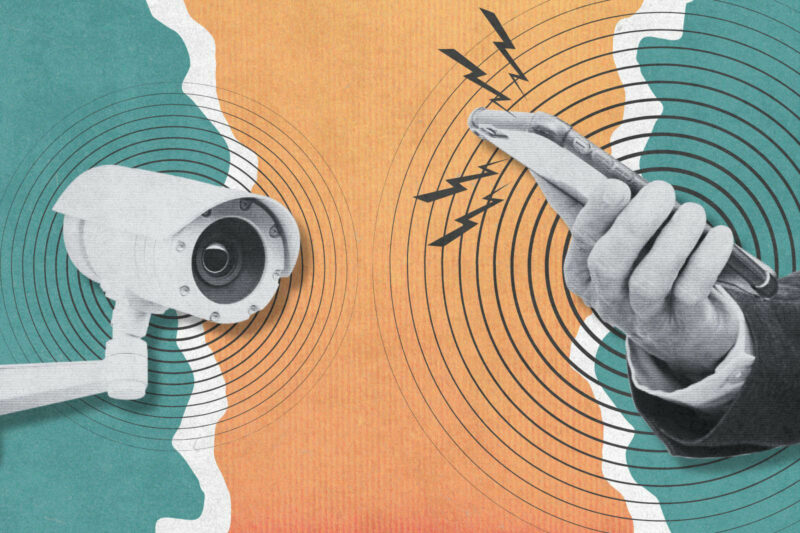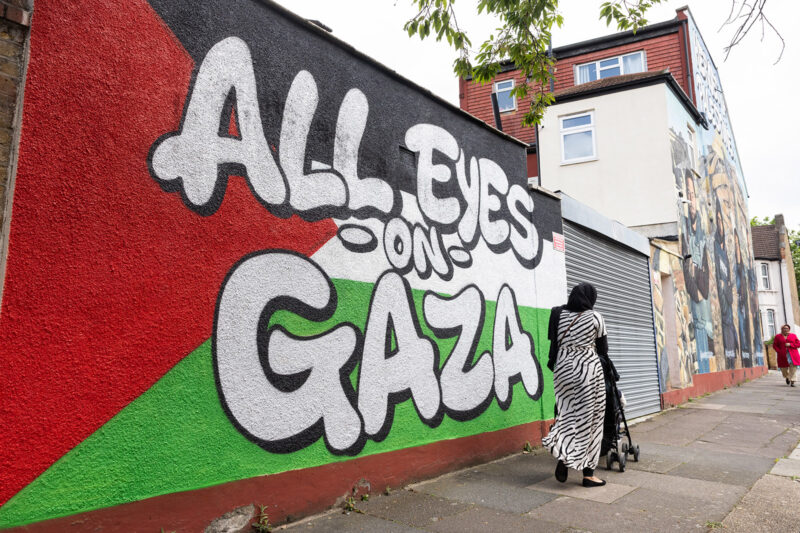How can Labour claim to promise change when it has not yet scrapped the regressive two-child benefit cap?
Despite the party’s commitment to progress, Keir Starmer has refused to overturn a policy that’s disproportionately affecting Muslim children and their mothers

Just days into the new Labour government, there is reportedly disarray in the ranks as Keir Starmer faces renewed calls from Scottish Labour, independents and opposition MPs to scrap the regressive two-child benefit cap.
My first child will soon turn three. I remember after maternity leave, I struggled to settle back into my demanding full-time job as a secondary school teacher. Child benefit was a lifeline in helping me afford the ever-rising cost of bringing up a small human through the period of unemployment when I decided to spend more time with my son before returning to work. Now, expecting my second child, the prospect of being unable to receive extra support for any future children fills me with dread.
A George Osborne-era austerity policy typical of the destructive and bleak Tory rule the country was subjected to for 14 years, the two-child cap refers to the limit placed upon families who claim child tax credit — a means-tested benefit that can help with the cost of raising a child for those on a low income. For many families, it is a lifeline and can mean the difference between living in destitution or just about getting by. I see the real-terms impact of austerity policies like this in my work, day in, day out. Children routinely turn up to class visibly hungry. Teenagers are saddled with adult burdens because poverty means they are living in insecure housing or caring for younger siblings so their parents can work extra hours.
According to a new report from the Child Poverty Action Group, there are almost 1.6 million children in 400,000 families across the UK affected by the policy. These families are missing out on up to £3,455 a year, per child. Removing the cap would lift 300,000 children above the breadline, and a further 700,000 out of extreme poverty. But despite Keir Starmer’s apparent commitment to bringing “change”, and even facing backlash within his own party, he has refused to overturn this policy.
Women with children know all too well that our earning potential becomes capped after motherhood by a patriarchal, capitalist system that punishes us economically for taking time out of the workplace to raise a family. In fact, according to analysis by the Institute for Fiscal Studies, seven years after the birth of a first child, women’s earnings are still on average less than half that of their male colleagues. Any help from the state can be vital to stay afloat when the cost of living keeps skyrocketing, and this is only compounded for women on the lowest incomes.
That’s precisely why the two-child benefit cap is so damaging. It’s not just the hundreds of thousands of children it forces into destitution, but it is their families too — and disproportionately their mothers. The Women’s Budget Group has said that real-terms cuts to welfare since 2010 have contributed to gender inequality in the UK, pushing both women and children into poverty.
For Muslim families, the impact of the two-child benefit cap is all the more devastating. According to the 2022 Muslim Census, 50% of Muslim households live in poverty compared to 18% of the general population. To add to this, Muslims are disproportionately more likely to live in overcrowded homes and social housing than the wider British populace. Amid concerns about a stagnating birth rate in Britain as a whole, Muslims are one of the only groups bucking this trend. Take how Muhammad is consistently the top baby name for boys in the UK or the fact that Muslims have the youngest age profile of all religions, and it becomes clear that a policy punishing children could affect Muslims more acutely than others.
Against a backdrop of disproportionate poverty experienced by Muslims as a whole, Muslim women are some of the most economically disadvantaged in the country. According to the latest British Census, the percentage of people looking after their home or family was almost three times higher for people who identified as “Muslim” than the overall population. This figure is made up of mostly Muslim women, suggesting that more Muslim mothers remain at home with their children (and out of employment) than mothers of other backgrounds. These factors mean the two-child benefit cap is particularly detrimental for Muslim children and their mothers, and policies like these likely contributed to Muslims punishing Labour so harshly at the ballot box last week. It was certainly a factor for me.
The unspoken irony here is that Britain needs children to offset its ageing population. Pro-natalist movements are gaining in momentum across the western world because the birth rate simply isn’t keeping up with the demand. In fact, Labour’s own immigration policy places a focus on training up British workers to fill the gaps currently being plugged by migrants. As problematic as this regressive outlook on immigration is, how can the new government expect to achieve this without making the conditions for women to have children more favourable? With the ever-rising cost of childcare, the lack of affordable housing and the slashing of state support for families, we are fast approaching a situation where starting a family is something only the ultra-rich can afford.
Keir Starmer’s new government has been lauded for being the “most diverse ever” and his cabinet contains a record number of women, but how can we really consider this to be progress when the nation’s ruling party seems committed to a policy that keeps mothers and their children in unprecedented levels of poverty? If our new government is truly committed to delivering change for the nation, then they should start with overturning this draconian barrier to the survival of the UK’s most disadvantaged families.
 Newsletter
Newsletter













